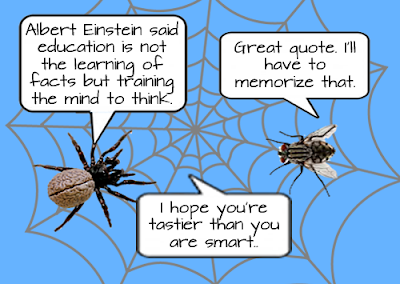When thinking entails too much effort, becomes too difficult and requires research, it's easy to resort to rhetoric or even name-calling. This is especially true in social media that requires short responses to complex issues. The best example are election campaigns. Many people not only let others do their thinking for them, but inappropriately use rhetoric when debating substance. In politics this becomes a useful tool for building or derailing popularity through sound bites. Sadly, it works.
Another doorway onto the Neener Neener Mobile is through senseless name-calling of the individual arguing as opposed to their arguments. Even when accurate, the context can pervert the content. The result is a childish game of one-upsmanship.
A personal favorite are those who wish to have the final say by stating things like "that's it, so lets move on" or "quips like "you don't know what you're talking about" or those who end their arguments by saying "period."
If you are unable to debate a certain issue without malice, you are unable to debate that issue because you will more invested in being right than in communicating your point. Thus, you will end up taking a ride on the Neener Neener Mobile. We all do it at least every now and then, but trying to avoid it is a step forward in advancing thinking skills.









